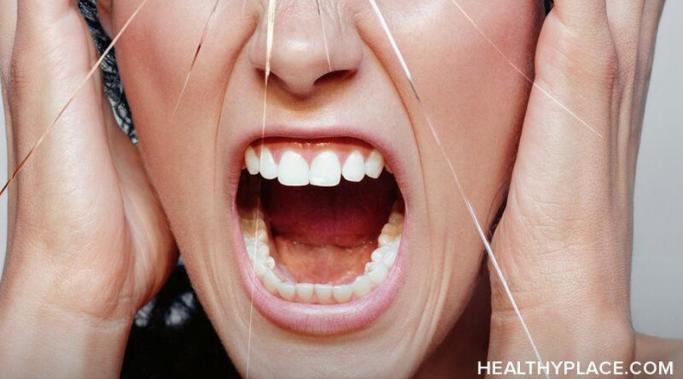Blogs
Juliana Sabatello
Whether or not we like it, we live in a world made for extroverts. Life demands so much of our social energy, and while extroverts feel energized in the company of others, introverts like me feel drained when they spend too much time around other people. Neurodiverse people and those with mental illnesses might feel even more drained in social situations than neurotypical individuals. If we don't recognize when we're socially overwhelmed and do something about it, we can end up coping with it in other less healthy ways.
Anxiety is a common struggle for people who undergo major stress. However, anxiety becomes paralyzing when it intensifies so much that a person loses the ability to function. In this post, I share my description of paralyzing anxiety and information about my experience with it. I also discuss coping methods that helped me get through paralyzing anxiety.
They say you only live once. For a person with depression and suicidal tendencies, death is not exactly bad news. I know this sounds bleak, but every one of us is sure to die someday. In fact, my "death story" is often the only thing that motivates me to work hard. Let me explain. (Note: This piece contains a trigger warning.)
You've been diagnosed with postpartum depression (PPD). You've started treatment, whether it be therapy, lifestyle changes, and/or medication. You read about one woman who had PPD and was better in a month, so you're ready to tackle this and "return to normal" in a few weeks, right? Not so fast. How long "should" PPD last?
People with borderline personality disorder (BPD) may struggle with self-destructive behavior and self-hatred. I spent many years believing that I didn't deserve happiness and getting in my own way because of it. However, there are methods you can use to stop sabotaging yourself when you live with BPD.
If you or someone you know has been the victim of verbal abuse, it can be hard to determine how to handle the situation. Verbal abuse can show up in the home, at work, or even in public situations. Each circumstance is unique, and knowing how to defend yourself against verbal abuse can be complex. In some cases, verbal abuse can lead to physical violence, so effectively handling it can keep you safe from harm.
I wish I could say that my poor mental health doesn't affect my social life and relationships, but unfortunately, it does. Sometimes, my mental illness makes me unkind, and it's embarrassing to be the one always canceling plans, leaving texts unanswered, and occasionally lashing out at friends and family.
It's important to shift your self-talk when you're anxious because anxiety can (and usually does) make us painfully hard on ourselves. Any type of anxiety typically brings harsh self-judgments in the form of labels and negative self-talk. Often, it occurs so automatically and frequently that we almost get used to it and come to accept it as truth.
Being a cat owner, whenever I have to be away for an extended period of time, I have to arrange for someone to feed him. Every time I do that, without fail, I worry about him. It’s especially prominent during the few days before I have to leave him. It can often adversely impact my mental state for several days, so in this post, I want to explore why this may be the case.
Over the past few weeks, Simone Biles taught me so much about healing. I don't know Biles personally, of course, but I know resilience when I see it. At 24 years old, Biles has suffered the trauma of sexual abuse, the pain of numerous athletic injuries, the stress of training in a pandemic, the systemic offenses of the U.S. gymnastics culture, and the burden of expectations from an audience who assumes her performance will not falter.









